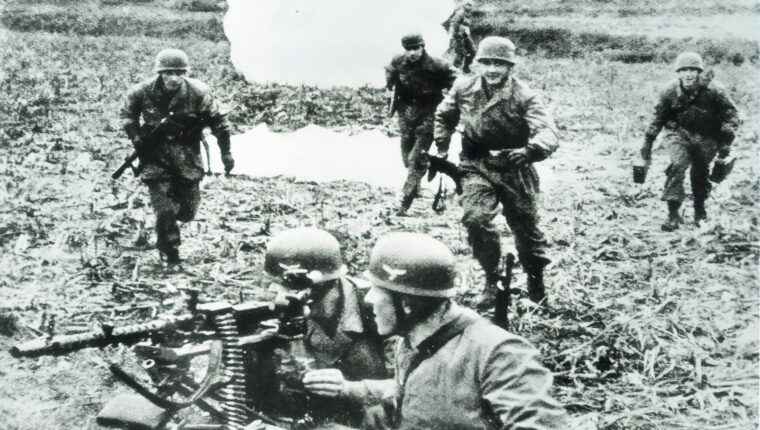
Blitzkrieg
Silent Blitzkrieg: the Battle of Fort Eben Emael
By Robert Barr SmithBelgian Fort Eben Emael was as close to impregnable as modern defense works could be—or so it seemed. Read more

Blitzkrieg
Belgian Fort Eben Emael was as close to impregnable as modern defense works could be—or so it seemed. Read more
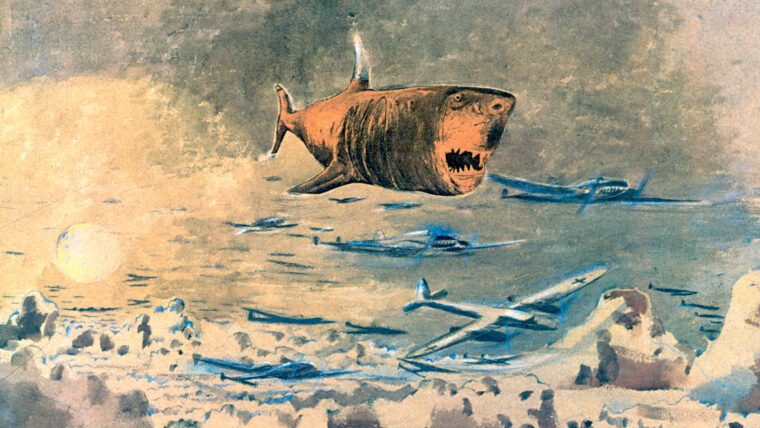
Blitzkrieg
Near the end of World War II, Hitler boasted he was about to unleash Vergeltungswaffen, or “vengeance weapons.” Read more
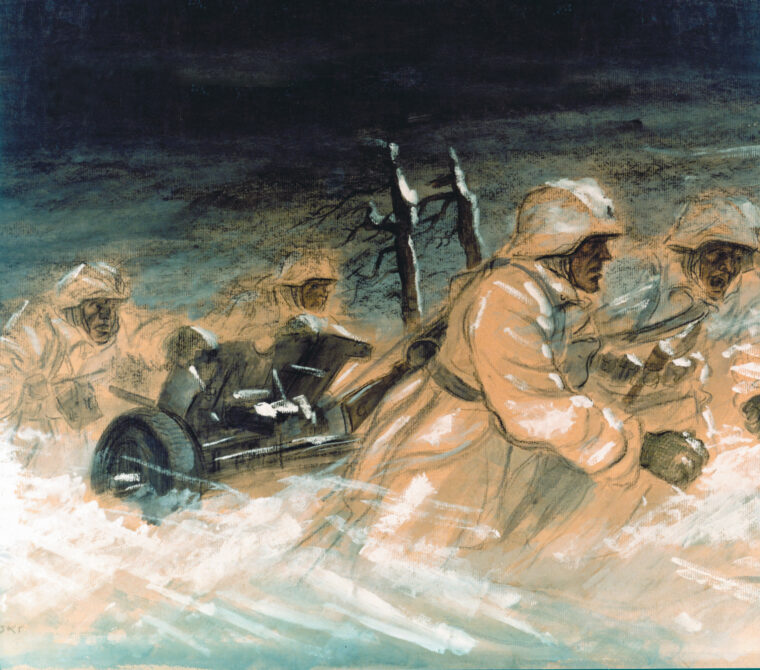
Blitzkrieg
On the vast Eastern Front, the Demyansk salient represented little more than a smudge on the battle map. Read more
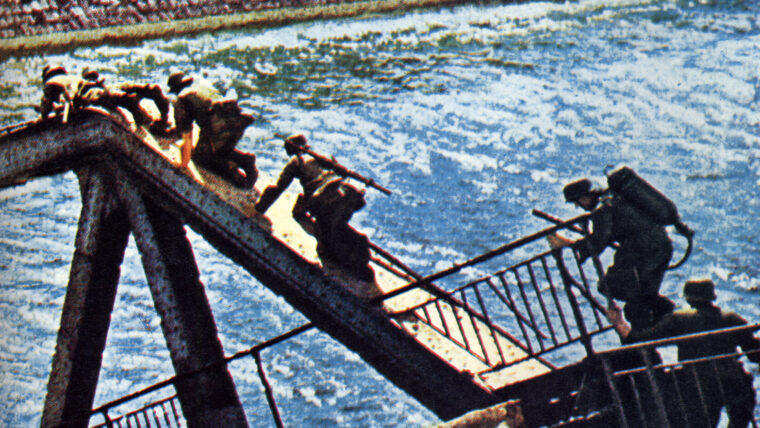
Blitzkrieg
War had been raging for 10 days, and Wehrmacht columns were pouring through Poland in a ceaseless torrent. Read more
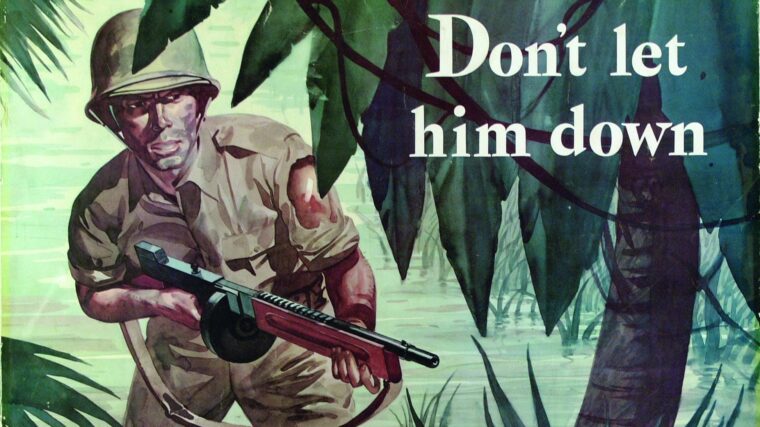
Blitzkrieg
One of the most unusual baseball games ever played was a three- way game in New York City between the New York Yankees, the New York Giants, and the Brooklyn Dodgers. Read more
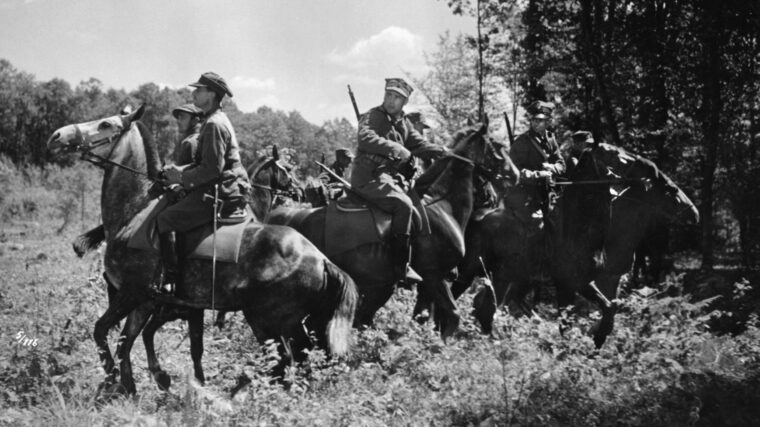
Blitzkrieg
In the late afternoon of September 1, 1939, the 18th Uhlan Regiment of the Pomorska Cavalry Brigade was holding its position along Poland’s heavily forested northwest frontier when orders arrived to attack the flank of the advancing German 20th Motorized Infantry Division. Read more
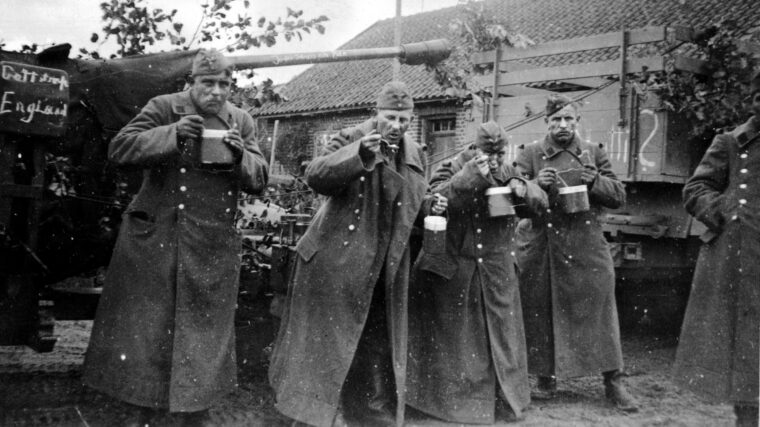
Blitzkrieg
It was Napoleon Bonaparte who purportedly said, “An army travels on its stomach.” Toward the goal of feeding his particular army’s stomach more efficiently, in 1795 the French general came up with an interesting solution to the problem. Read more
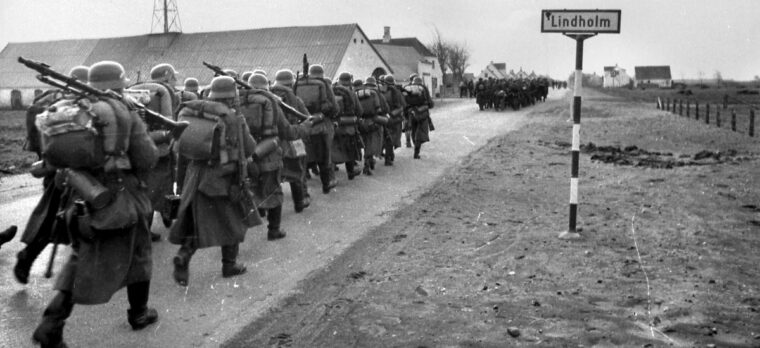
Blitzkrieg
On the night of April 8, 1940, almost four million people went to bed at peace in the midst of a world war. Read more
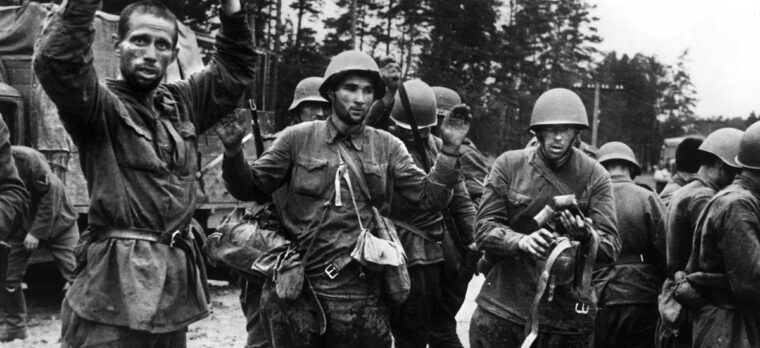
Blitzkrieg
By Richard Z. Freemann, Jr.
“War is mainly a catalogue of blunders.”
—Winston Churchill (1950)
On Sunday, June 22, 1941, as the sun slumbered, 3.6 million soldiers, 2,000 warplane pilots, and 3,350 tank commanders under skilled German command crouched at the border of Soviet-occupied Poland ready to invade the Communist nation Joseph Stalin had ruled with steel-fisted brutality for years. Read more
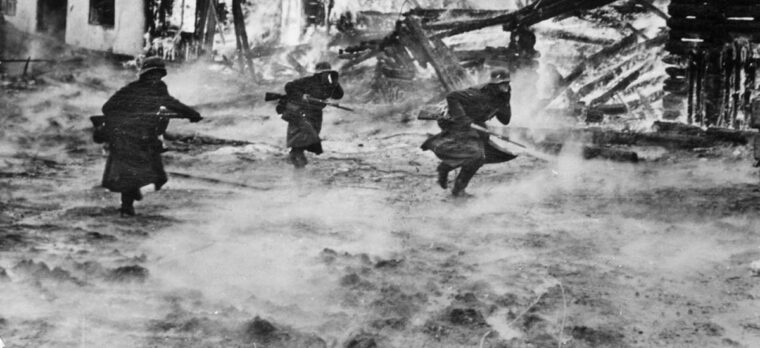
Blitzkrieg
By Mark Simmons
“U-64 was seen on the surface at the top of Herjansfjord near Bjrekvik. I selected the two anti-submarine bombs and put the Swordfish in a dive and released the bombs at 200 feet. Read more
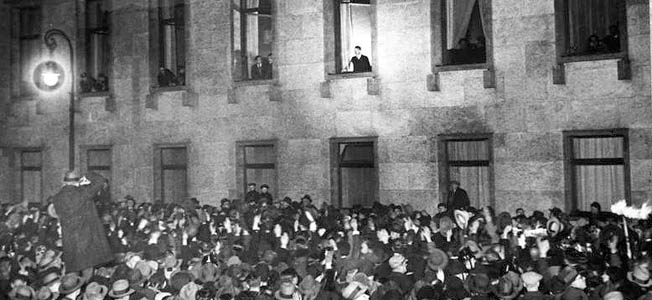
Blitzkrieg
German interest in Adolf Hitler is on the rise, according to a recent Telgraph article and a study conducted by the German Media Control group. Read more

Blitzkrieg
They said it couldn’t be done. Doubters chided Henry Ford for declaring that his Willow Run Bomber Plant could turn out a B-24 Liberator heavy bomber every hour. Read more
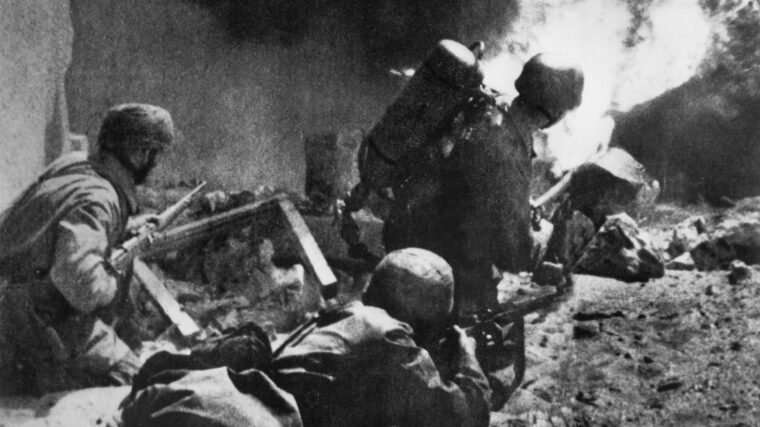
Blitzkrieg
At 4:25am in the predawn darkness of May 10, 1940, nine German gliders silently skidded to a stop on the hilltop of the most heavily defended fortress in Europe, disgorging 71 highly trained German Fallschirmjäger. Read more
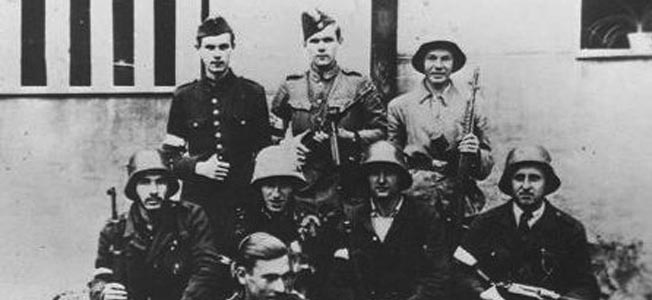
Blitzkrieg
Julian Kulski was only ten years old when he was introduced to war. As he hunted for mushrooms near Warsaw, Poland, he was struck by the unmistakable buzz of the German blitzkrieg:
“… we heard the sound of engines. Read more
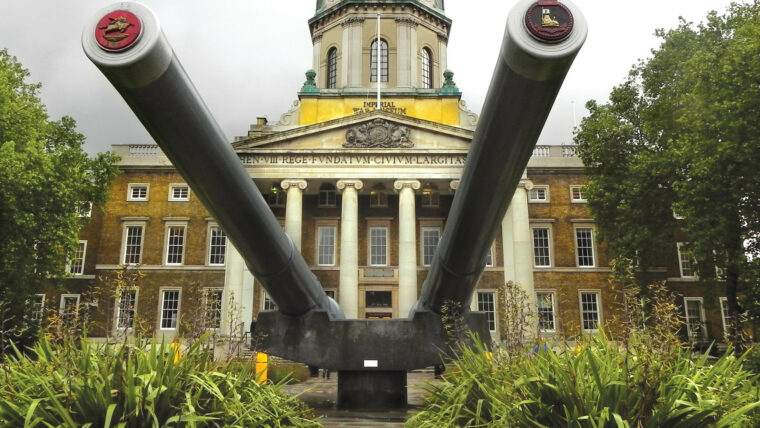
Blitzkrieg
Although Britain has a number of war museums, the Imperial War Museum (IWM) is acknowledged as the Holy Grail of them all—the one you must visit when in London. Read more
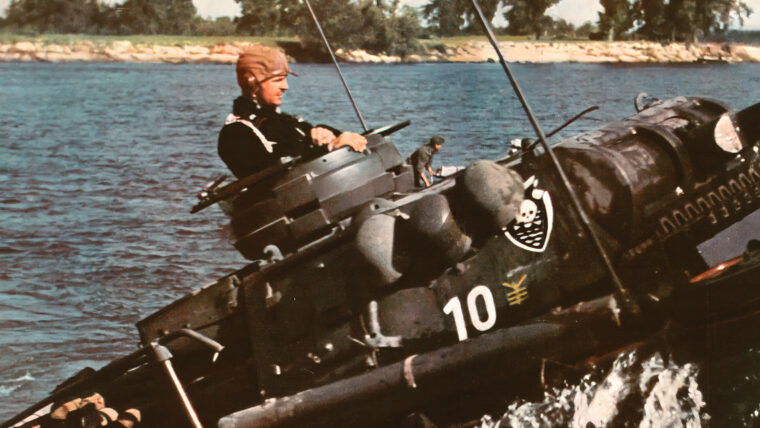
Blitzkrieg
The first time Adolf Hitler ventured into the captured territory of the Soviet Union was six weeks into the campaign on August 4, 1941, when he traveled to Borisov to the headquarters of Army Group Center and its commander, Field Marshal Fedor von Bock. Read more
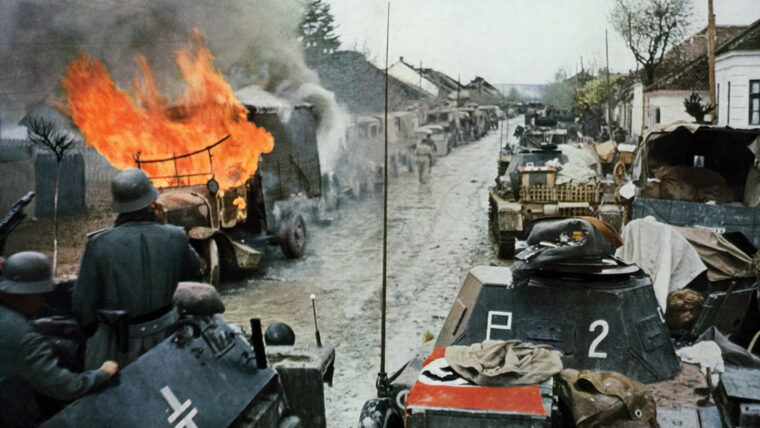
Blitzkrieg
It was the most exciting scene Associated Press correspondent Robert St. John had yet witnessed in the career he had abandoned for five years to farm in New Hampshire then returned to when he sensed that war was coming. Read more
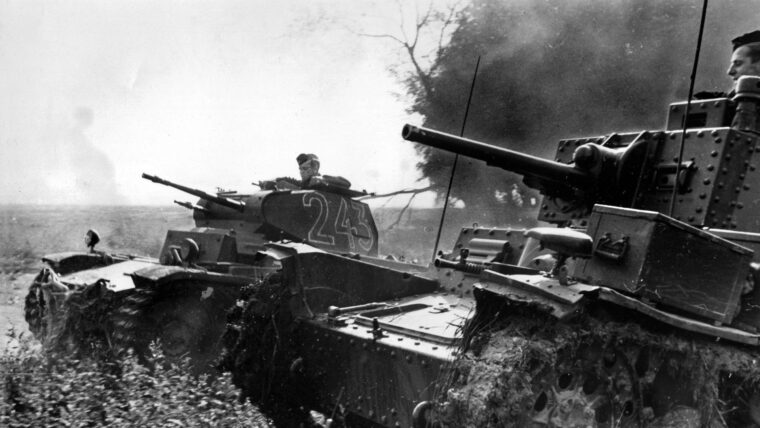
Blitzkrieg
In the early hours of May 14, 1940, General Alphonse Georges, the French commander of the northeast front, received bad news at his headquarters, the small but elegant 18th-century Chateau des Bondons, an hour’s drive east of Paris near the River Marne. Read more
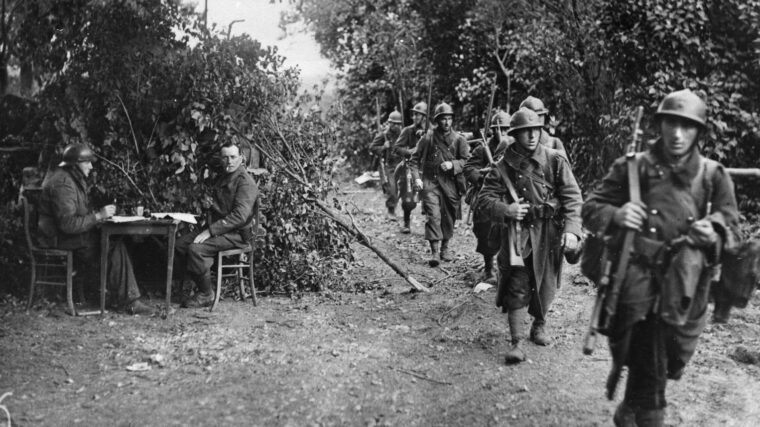
Blitzkrieg
The attack was beginning despite the widespread lack of artillery support, engineers, or armor. Normally this would be a recipe for disaster. Read more
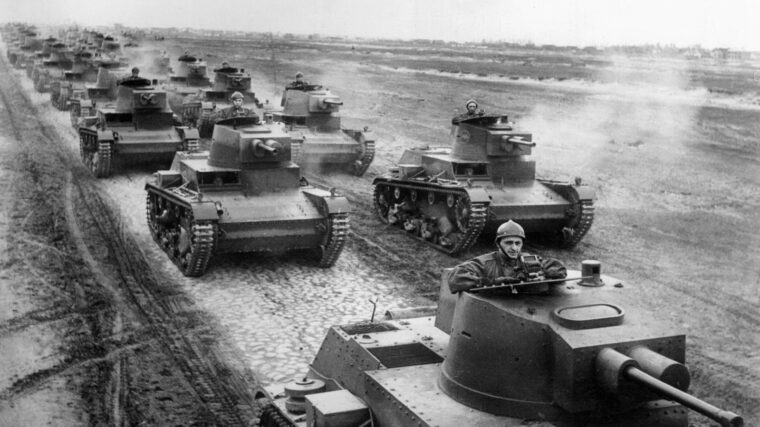
Blitzkrieg
At the mention of the letters “SS,” an image springs to mind of ruthless German troops, the epitome of the Nazi/Aryan ideal: tall, strong, blond-haired, and blue-eyed, enthusiastically ready to fight and die for Germany and their beloved Führer, Adolf Hitler. Read more